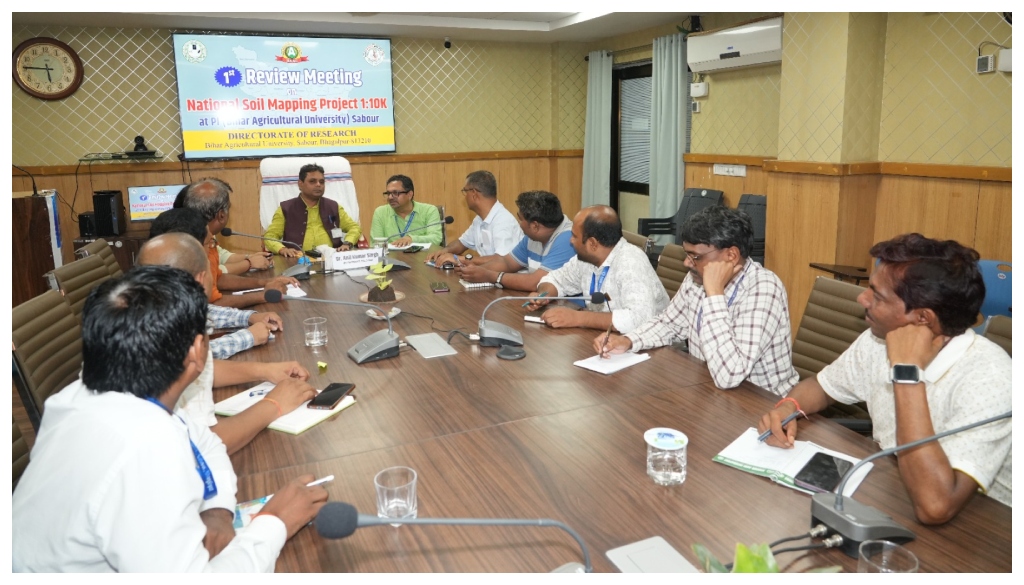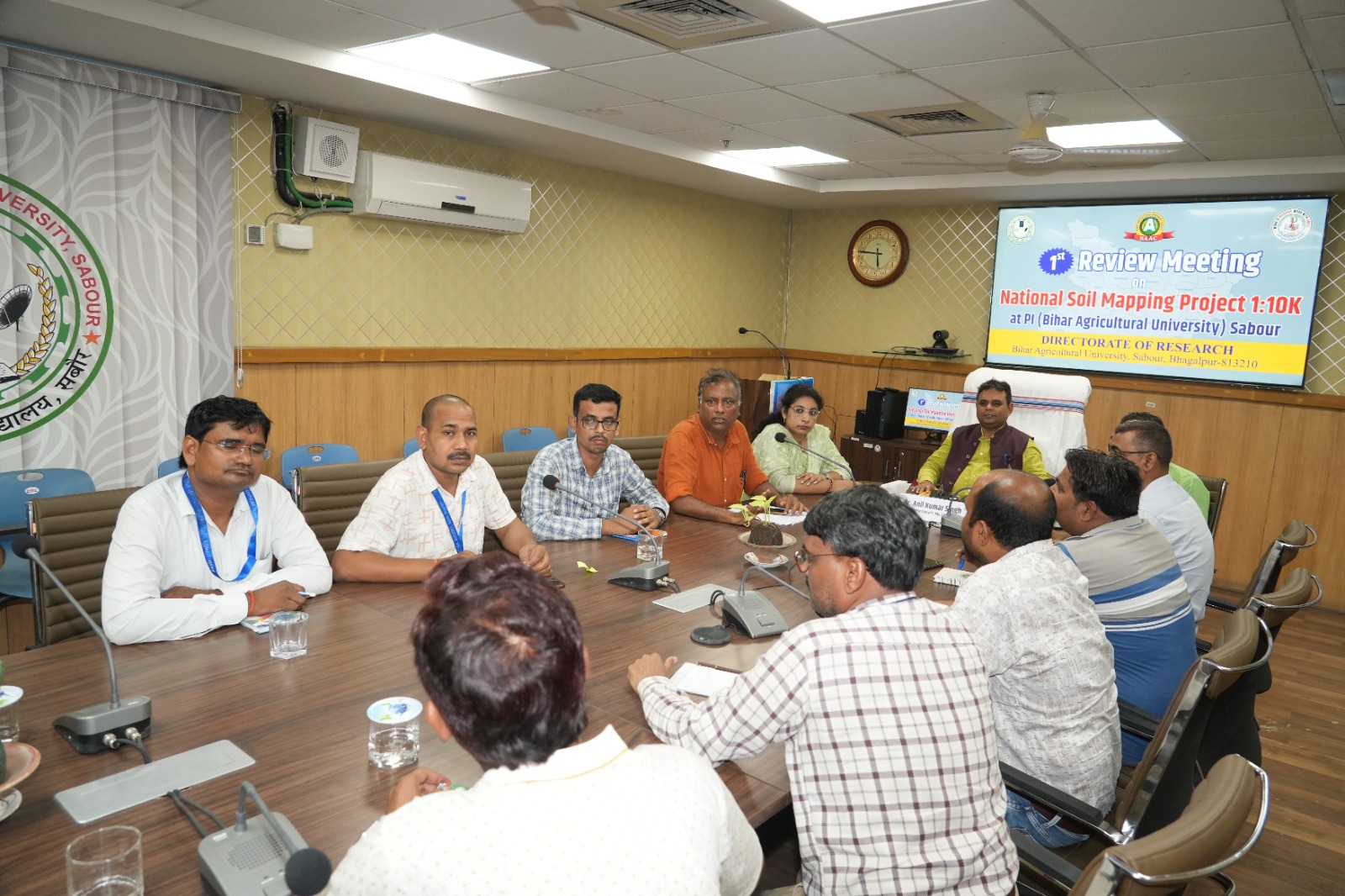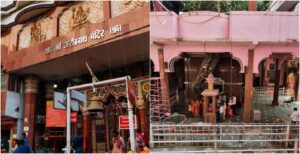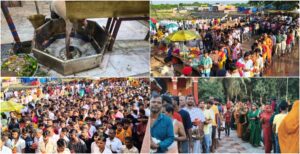
Sabour: Bihar Agricultural University, Sabour (BAU), is set to undertake a historic high-resolution soil mapping initiative across all 38 districts of Bihar. The first review meeting of the National Soil Mapping Program on a 1:10k scale concluded with detailed discussions on its execution at the BAU Research Directorate on July 9.
Funded by the Department of Soil and Land Use Survey under the Ministry of Agriculture and Farmers Welfare, the project will be implemented by BAU over the next three years in two phases. The resulting high-resolution soil maps will support agricultural policy, soil health management, regional agricultural planning, and climate change adaptation strategies.
The meeting was chaired by Anil Kumar Singh, Director Research and Nodal Officer for the project, and attended by Y. K. Singh, Chief Soil Survey Officer; Anshuman Kohli, Chairman of the Department of Soil Science and Agricultural Chemistry; along with scientists, department heads, and technical experts from BAU. Key points discussed included standard operating procedures, data collection strategies, and inter-institutional coordination frameworks.
 Vice Chancellor D. R. Singh described the project as a matter of pride for Bihar, stating, “This initiative will not only help in understanding soil quality and suitability but will also provide farmers with region-specific advisory, nutrient management, and climate-friendly farming solutions. It will make Bihar a pioneer in soil knowledge and land use science.”
Vice Chancellor D. R. Singh described the project as a matter of pride for Bihar, stating, “This initiative will not only help in understanding soil quality and suitability but will also provide farmers with region-specific advisory, nutrient management, and climate-friendly farming solutions. It will make Bihar a pioneer in soil knowledge and land use science.”
Anil Kumar Singh added, “This is a golden opportunity to connect India’s soil-based agriculture with modern science. Our committed team will ensure scientific quality, transparency, and timely execution, helping farmers understand the real identity and needs of their land to increase yield and reduce cost.”
The meeting concluded with the finalisation of the draft action plan, digital data management systems, and fieldwork strategies. Training programs, quality assurance modules, and coordination mechanisms with state and central government departments were also agreed upon.
The project aims to achieve “One District – One Soil Profile” and is expected to become a scientific pillar for future smart agriculture policies in Bihar.





